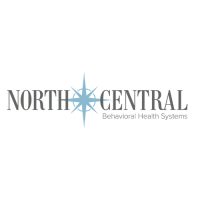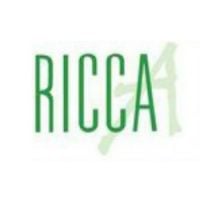Sinnissippi Centers - Sterling Office
Drug Rehab Center in Sterling, Illinois
Sinnissippi Centers - Sterling Office is an addiction treatment facility accredited by JCAHO, offering various levels of care for individuals seeking to overcome addiction, including alcoholism, opioid addiction, and dual diagnosis, and accepting private health insurance.
About Sinnissippi Centers - Sterling Office in Illinois
Sinnissippi Centers - Sterling Office, located in Sterling, Illinois, is a respected addiction treatment facility that has been providing comprehensive care for individuals struggling with mental health and substance use disorders. With a history of delivering quality treatment, Sinnissippi Centers - Sterling Office focuses on helping clients overcome their challenges and achieve lasting recovery.
• Accredited by the Joint Commission on Accreditation of Healthcare Organizations (JCAHO), ensuring the highest standards of care
• Specializes in treating alcoholism, opioid addiction, and dual diagnosis cases
• Offers a wide range of services, including assessments, intensive outpatient programs (IOP), family counseling, and DUI evaluations
• Provides aftercare support, detoxification programs, outpatient services, and intervention services
Sinnissippi Centers - Sterling Office is committed to delivering evidence-based treatment that addresses the unique needs of each individual. The facility's JCAHO accreditation demonstrates its dedication to maintaining the highest level of quality and safety in its programs and services.
At Sinnissippi Centers - Sterling Office, clients can receive treatment for a variety of substance use disorders, including alcohol and opioid addiction. The facility also provides specialized care for individuals with co-occurring mental health disorders through its dual diagnosis program. Treatment options include intensive outpatient programs, outpatient services, and sober-living or halfway house arrangements, allowing clients to receive the level of care that best suits their needs.
Genders
Ages
Modality
Additional
Accreditations

JCAHO
Conditions and Issues Treated
Opioid addiction starts when a person becomes addicted to legal or illegal opioids. The addiction can happen quickly, in just a matter of days. Opioid withdrawal can be extremely uncomfortable and lead the user to continue to use even if they want to quit. Stopping using an opioid requires medical observation. Sometimes inpatient treatment with a medically supervised detox is necessary for managing the withdrawal process while learning lasting tools for maintaining recovery. Medications may be used in some cases of opioid addiction.
Opioid addiction is one of Illinois‘s most prominent forms of addiction. It’s treated by detoxifying the body so that the chemicals from the medications no longer impact them and by therapies to correct behavior and target the root of the problem.
Recovery is not simply about stopping drug use. Recovery is working with addiction while recovering mental health issues that are fueling the addiction in the first place.
Levels of Care Offered
This center offers a variety of custom treatment tailored to individual recovery. Currently available are Aftercare Support, Detox, Dual-Diagnosis, Intensive Outpatient, Intervention, Outpatient, Sober-Living / Half-Way, with additional therapies available as listed below.
Detox is the first step of rehab. It involves giving a person time to get the toxins out of their body. During detox, the patient gets ill and they will often start using again to get rid of these unpleasant feelings. That’s why it’s so important to have a Sterling medical professional at Sinnissippi Centers - Sterling Office present. A Illinois medical professional will make sure patients don’t start using during detox. They will also provide medication to ease their symptoms and coach them through on a mental level.
Addicts who need help with their addiction can enroll in an intensive outpatient program (IOP). But the patient won’t live there during treatment.
IOP involves patients visiting a medical office building regularly for therapy and other services while continuing to live their lives.
IOP is a step up from drug or alcohol detox, but it’s still a phase of recovery, not the end goal. Patients in need of IOP have many options for rehab and treatment.
Outpatient treatment is considered the lower intensity level of addiction treatment. It’s ideal for early phase addiction or lower intensity addictions. It may include weekly sessions instead of daily. It may include weekly sessions instead of daily. Peer group support, 12-step programs, and individual counseling may still be involved but at a lesser frequency than an intensive outpatient program. It is a good choice for someone who doesn’t need to go through a medically supervised detox and who has a supportive home environment. It requires motivation and dedication to commit to the program without constant monitoring.
Sober living homes (abbreviated SLHs or sometimes sober houses) are temporary housing for recovering addicts. The typical SLH functions as a halfway house, providing a stable living environment for addicts in recovery. While at an SLH, residents typically meet with various therapists on site and attend regular 12-step meetings as well as other recovery group meetings.
Not everyone dealing with addiction is prepared to engage in a recovery program. Sinnissippi Centers - Sterling Office‘s Intervention Programs can be beneficial for these individuals. The individual’s friends and family will call and set up an intervention in or near Sterling, IL, and at which a specialist will come and lead the discussion.
Aftercare support should take place after outpatient treatment has ended. There are a few different types of aftercare support that patients can seek. These include 12 Step, Self-help groups (AA, NA), Therapeutic communities, Long-term, structured sober living arrangements, and Halfway houses (residential treatment centers).
Therapies & Programs
Individual therapy involves one-on-one sessions between the patient and therapist. It provides patients with a safe environment to openly discuss personal and sensitive issues with the therapist. They find the therapist as someone they can trust. Individual therapy aims to identify the core issues that would have led the patient to substance abuse and address them effectively. The therapist can develop patient-specific customized solutions through individual therapy, which aids speedier recovery.
Family therapy is a group problem-solving that aims to improve communication and relationships between the addict, their family, and sometimes friends. The main goal of family therapy for drug addiction is to create an environment where communication can occur without judgment, hostility, or blame. The therapist is with the family as they learn to communicate differently, especially with the addict when s/he is using. The family can learn to reduce their enabling behavior or rally together and support each other during tough times.
An addict’s family can play a vital part in helping them to avoid relapse because they can spot the warning signs and help them get back on track before it becomes too much of a problem. Family therapy is one of the most effective ways to help addicts stay on the path to long-term sobriety. When a drug addict decides that they want to try and get sober, it takes the support of every person they love to succeed. It can be incredibly difficult for loved ones to watch an addict go through the pain and suffering of withdrawal, but by being there with them and supporting them, they can help to make sure that the addiction never returns.
Groups typically involve meetings with other recovering addicts who can relate to one another’s experiences. They might meet in person or online and typically focus on the process of staying sober rather than overcoming a specific addiction.
In these groups managed by Sinnissippi Centers - Sterling Office, addicts can build a sense of community and develop strong emotional connections with others who understand what they are going through. These beneficial relationships can help addicts overcome their cravings and prevent relapse at any point during the recovery process.
In general, trauma therapy is a clinical process that helps individuals deal with mental stress often caused by traumatic events. The therapist helps the person identify, understand, and work through the problem. This is done with the help of talking about it in group or one-on-one counseling sessions. Therapists use relaxation, role-playing, art, and music to help the person open up about what is bothering them.
There are many different types of trauma therapists, such as psychiatric nurses and counselors. Not everyone is a good candidate for this type of therapy; it is generally reserved for people who have recently experienced a traumatic event and struggle to get over it. It is often done for children, teenage victims of sexual assault, and war veterans.
Dialectical Behavior Therapy (DBT) is a type of therapy created in the late 1980s and early 1990s to help people with high rates of suicidal behavior. DBT helps people learn how to live a life that is no longer controlled by overwhelming emotions and urges. It is beneficial in treating drug addiction because it helps patients understand and cope with their cravings for drugs or alcohol rather than turning to those substances as a way of coping.
Since addiction is a chronic physical and mental illness, addicts need to learn as many life skills as possible. Many drug treatment centers offer life skills activities as part of their addiction recovery programs. Examples include cooking classes, employment training, resume writing seminars, parenting classes, and computer training. Life skills activities help addicts find employment, take care of their families, and give back to the community.
Payment Options Accepted
For specific insurance or payment methods please contact us.
Is your insurance accepted?
Ask an expert, call (888) 674-0062
Additional Details
Specifics, location, and helpful extra information.
Sterling, Illinois 61081 Phone Number(815) 625-0013 Meta DetailsUpdated April 15, 2024
Staff Verified
Sinnissippi Centers - Sterling Office Patient Reviews
There are no reviews yet. Be the first one to write one.
Sterling, Illinois Addiction Information
In 2016, more than 2,350 Illinoisans died from drug overdoses. More than 5,500 deaths annually occur in Illinois due to the abuse of alcohol and other drugs. 7.17% of Illinois residents reported using illicit drugs in the past month (2018). Substance abuse costs the state approximately $3.5 billion every year.
Heroin and opioid painkillers are the drugs most often responsible for overdoses in Sterling, IL. 12% of adults in Sterling are reported to use illicit drugs. 18% of people died of drug overdose between 2014 and 2018. The Illinois Department of Public Health reports that in Sterling, there were 137 hospitalizations related to drug overdoses in 2018. The most common treatment options include inpatient and outpatient treatment, 12-step programs, and detoxification.
Treatment in Nearby Cities
- Geneva, IL (69.2 mi.)
- Edwardsville, IL (207.3 mi.)
- Addison, IL (86.8 mi.)
- Princeton, IL (31.6 mi.)
- Tinley Park, IL (98.0 mi.)
Centers near Sinnissippi Centers - Sterling Office
The facility name, logo and brand are the property and registered trademarks of Sinnissippi Centers - Sterling Office, and are being used for identification and informational purposes only. Use of these names, logos and brands shall not imply endorsement. RehabNow.org is not affiliated with or sponsored by Sinnissippi Centers - Sterling Office.








